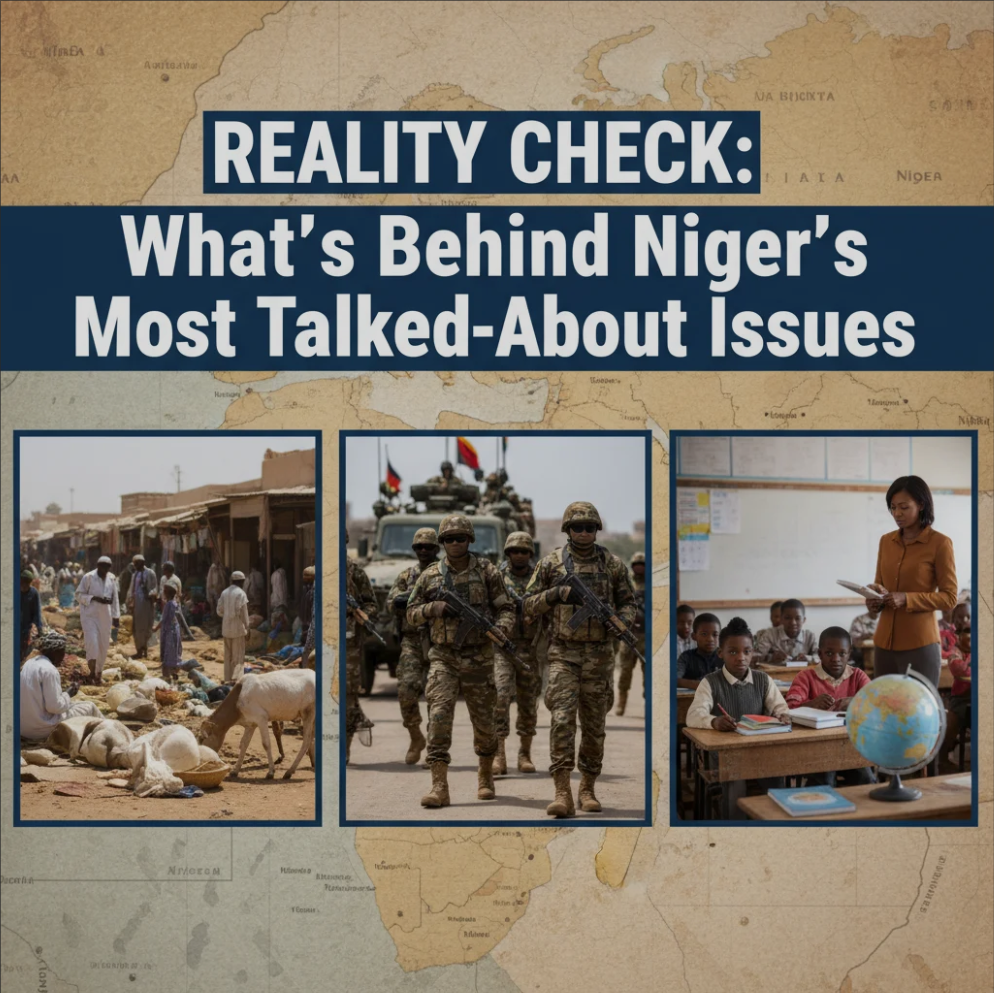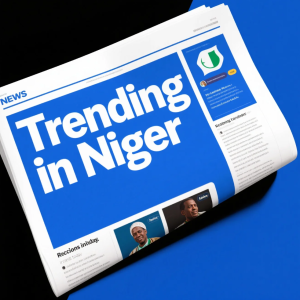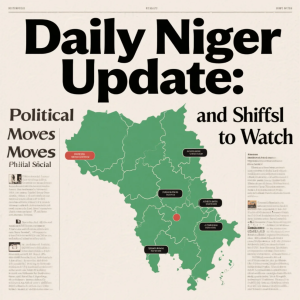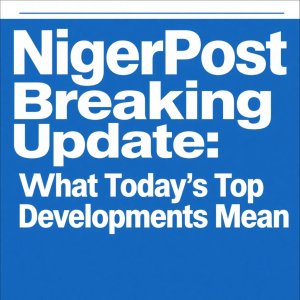In recent years, Niger has become one of the most discussed nations in West Africa — not just for its political changes, but for the complex realities shaping its future.
From shifting alliances to youth empowerment, economic reform, and national security, it’s time to take a reality check on what’s really driving conversations across the country.
🇳🇪 1. Politics and Power Dynamics
Niger’s political landscape has seen significant shifts — from leadership transitions to ongoing debates about governance and regional influence.
While the nation works toward stability and democratic resilience, citizens continue to voice concerns about representation, transparency, and long-term vision.
💬 “Change must come from within, but it requires trust,” says one Niamey resident reflecting the mood of many citizens.
💰 2. Economic Growth and Everyday Struggles
Despite growth in agriculture and energy, economic inequality remains a core issue.
Many communities still face challenges related to job access, infrastructure, and cost of living, especially in rural areas.
AI-driven tools and digital entrepreneurship are slowly opening new paths, yet Niger’s economic story is one of resilience amid adversity.
🛡️ 3. Security and Regional Stability
Security continues to dominate national headlines.
Niger’s geographical position — sharing borders with Mali, Nigeria, and Libya — places it at the center of regional security challenges.
Efforts by the military and international partners aim to ensure peace, but lasting stability depends on addressing root social and economic causes.
👩🎓 4. Youth, Education, and Opportunity
With more than 60% of Niger’s population under 25, youth empowerment is a defining issue.
Education reform, digital training, and startup support programs are crucial for unlocking the nation’s future potential.
Young Nigeriens are increasingly active online — creating art, business, and social change movements that challenge stereotypes and redefine the country’s narrative.
🌍 5. Environmental and Climate Challenges
Niger’s arid climate and frequent droughts make climate resilience a top concern.
Communities across the Sahel are pioneering sustainable farming, reforestation, and water management to secure their livelihoods.
These grassroots efforts highlight the country’s determination to adapt — even in the face of global environmental shifts.
⚖️ 6. The Media, Public Opinion, and Misinformation
In the age of social media, information travels fast — sometimes too fast.
Local journalists and fact-checking groups are working to combat misinformation, ensuring citizens have access to reliable reporting and diverse perspectives.
Critical dialogue, when based on facts, can help strengthen democracy and accountability in Niger’s evolving political landscape.
🌟 Conclusion: Facing Reality, Shaping the Future
Niger’s most talked-about issues — from security to youth empowerment — are deeply interconnected.
Behind every headline lies a nation in motion, striving for balance between tradition and transformation.
The future of Niger will be defined not by its challenges, but by how its people confront them with unity, creativity, and courage.




